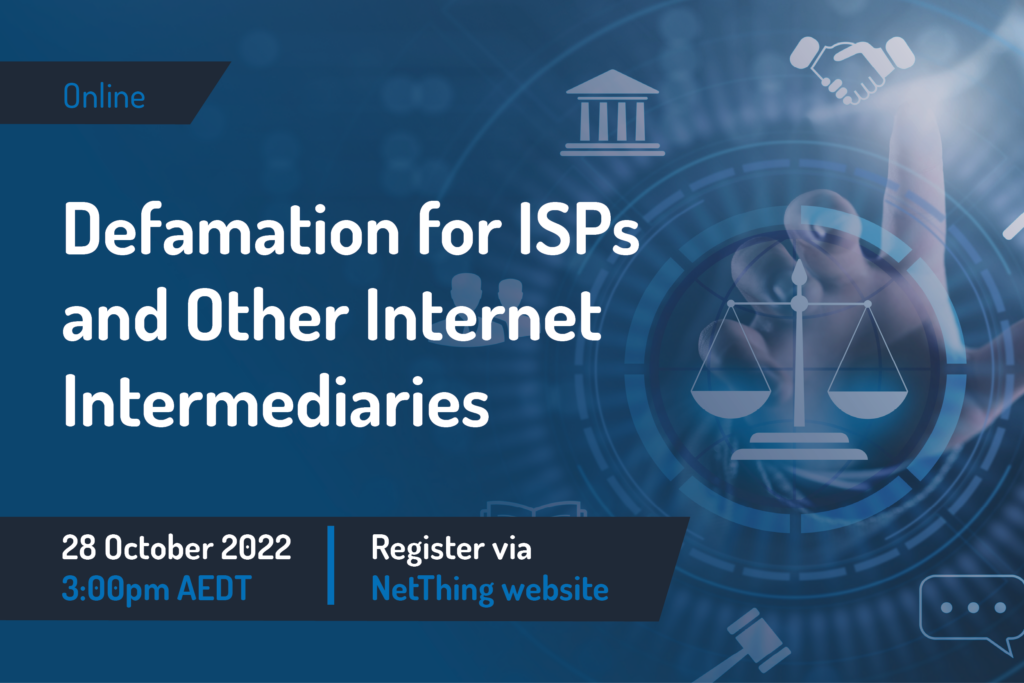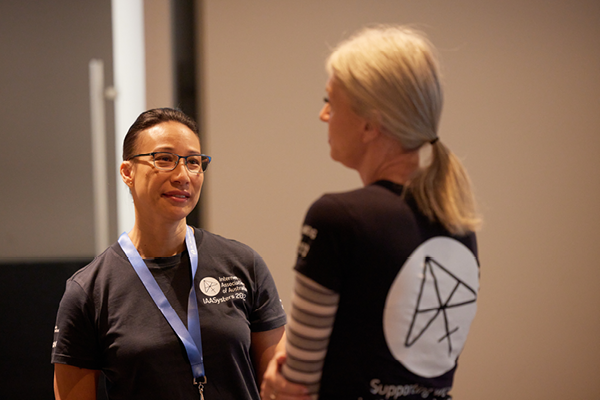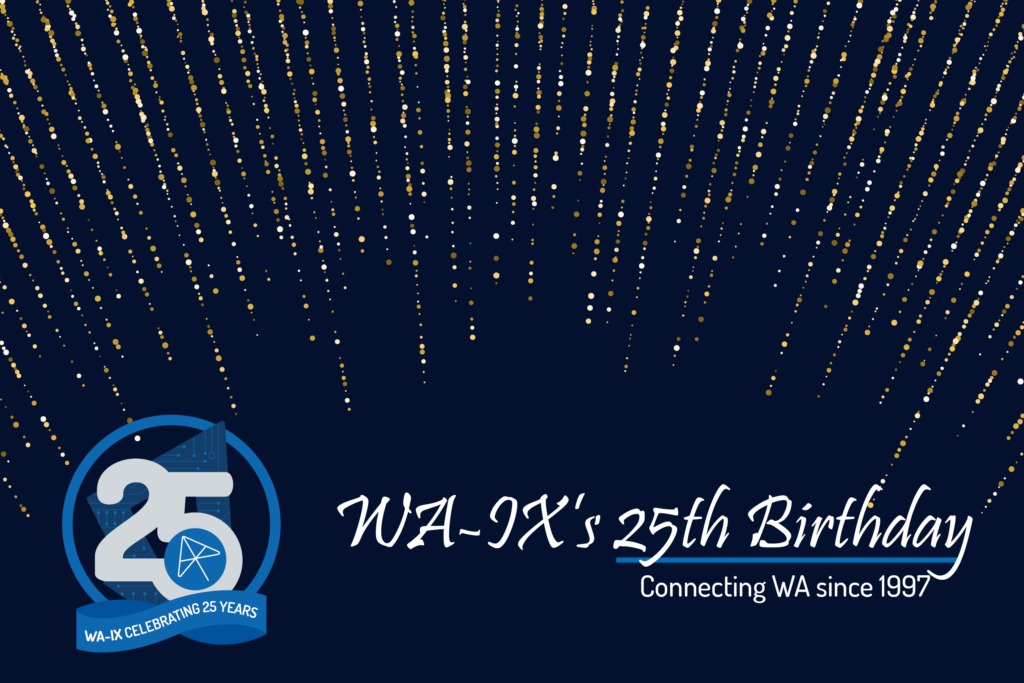IAA Newsletters
NetThing is taking place online again this year and it’s happening soon. With a line up of speakers including: Vint Cerf, Dr Tobias Feakin, The Hon Simon Kofe, The Hon Michelle Rowland MP and Rosemary Sinclair AM, it is set to be one of the best NetThings yet.
Date: Thursday 27 – Friday 28 October 2022
Time: (Thursday): 9:45am AEDT – 4:45pm AEDT
Time: (Friday): 9:45am AEDT – 3:45pm AEDT
Location: Virtual
We’re thrilled to be running a session again this year: Defamation for Internet Service Providers and Other Internet Intermediaries. This 45-minute panel discussion seeks to unpack the long-debated question of how to balance the responsibilities placed on different sections of the Internet industry to appropriately protect individual end-users, while also ensuring the smooth running of the Internet. Our panel includes Daniel Joyce (UNSW), John Morris (ISOC), Sophie Dawson (Bird & Bird), Sunita Bose (DiGI) and Christiane Gillespie-Jones (Comms Alliance). Read more about our upcoming session on our website.
If you would like to attend our session or any others, please keep an eye out on NetThing’s social media channels or sign up to their mailing list on the NetThing website.
Read More
The last chance to complete your asset registration under the new carrier licence condition and determination for eligible CSPs is 8 October 2022. Under this new determination, telcos must provide the Department of Home Affairs’ Cyber and Infrastructure Security Centre (CISC) with operational information in relation to their telecommunications assets. Where an entity holds a direct interest of at least 10% or a controlling stake in the asset, information about the interest and control in the asset must also be reported.
An ‘asset’ is defined to be a tangible asset owned or operated by a carrier/eligible carriage service provider and is used to supply a carriage service. It does not refer to typical termination equipment on customer premises. An asset can be thought of by way of an analogy – the entire car as opposed to the individual components that make up the motor vehicle. Please visit the CISC website for further information. We have also created this helpful guide to assist you.
Read More
In early 2021, one of our staff members caught up with founding member, Kim Heitman, as part of the research process for content for our website. Looking back on the interview, it’s interesting to read his perspective in conjunction with other founding members, as it gives a sense of just how united the founding Committee were. Here’s what Kim had to say about WA-IX:
“The need to build WA-IX in 1997 arose from the Association bringing together hundreds of ISPs and content service providers all operating like small businesses. They needed purchasing power and alternatives to telco services. WA-IX was a great leveller and helped small ISPs and associated businesses build their service offerings in Perth and surrounds.”
“The Association was heavily behind the ‘Stop Telstra’ campaign, prompted when the telco floated the proposal to charge ISPs for receiving dial-up users’ calls on a timed basis – called ‘B Party charging’. The user would pay the usual phone flagfall but the ISP would pay a second fee to Telstra by the minute. This was an existential threat to small ISPs and was handily defeated in the public debate.”
When asked about the obstacles the Association faced and how they overcame them in the early years, Kim responded:
“In the early days, before WA-IX revenues helped the bottom line, the income from subscriptions was insufficient to hire staff, including tech support for WA-IX. We struggled from year to year to find the funds to achieve our goals and do public events such as Internet demonstrations or conferences. The visibility and impact of the Association depended on the commitment of volunteers and their ability to support Association roles while trying to make a living. Luckily, the bonds of friendship within the WA industry were strong, and it was mostly a fraternal relationship with members competing against the world rather than each other. WAIA collaborated in 2001 to form the Information Communications and Telecommunications Alliance of WA (ICTWA) with several other professional bodies, including the Australian Computer Society, the Australian Information Industry Association, the Australian Interactive Multimedia Industry Association, the Telecommunications Society of Australia, the Institute of Engineers, and Software Engineering Australia. This cross-cultured approach to advancing industry policy led to an informed and educated generation of businesses and technology workers and eventually growth in information industries in this State and elsewhere.”
“The consolidation of the WA – and Australian – ISP industry in the 2000s was an extraordinary transition from a typically small-business profile to massive telecommunication giants. The role of the IAA in providing infrastructure for those competing with the world leaders and national companies will continue to be relevant, and other sectors (such as higher education or research collaborators) may find the not-for-profit providers such as the IAA a boon to their missions. The support of the Association for its members and customers is a bright spark in an otherwise cut-throat industry.”
“In the early years, the incumbent telco was routinely criticised by ISPs with a 90% dissatisfaction rate on new services, delays and connection problems were part of their struggles. While there is plenty to criticise with the current telecommunications infrastructure, competition did drive better services and cheaper prices.”
“Profits on bandwidth and services have put the Association in a strong and stable financial footing, and I would urge further investment in the multitude of technologies still ahead of the curve.”
Read More
Our AusNOG swag bag item seemed to cause quite a stir this year with us trying to keep the packaging simple. Well…they are USB Data Blockers. We’ve all been caught short of charge when out and about, so these small devices sit between your phone and public (including hotel) USB power stations and outlets, acting as a shield between the public USB connection and your device. These wonderful things restrict hackers from accessing your data. How? Hackers can rig charging stations so they can ‘juice jack’ your data through data pins. These pins allow hackers to find a pathway into your device/s. Data blockers are designed to block these pins ensuring that your data doesn’t flow. So, now that you know what they are, and how they work, please use them, even when bludging that bit of charge from a mate’s computer. We’ve got more and will be handing them out at our next few events.
Read More
We’re happy to report that the IAASysters Workshop was a resounding success. This year, we brought 17 women, at different stages of their careers, to our one-day workshop and the AusNOG conference that followed. With overwhelmingly positive feedback from attendees and sponsors, we couldn’t be more pleased with the positive effect the program has had on these women. But don’t just take our word for it; take theirs:
“This workshop was something I didn’t realise I needed, but coming out of it, I can confidently say that I definitely needed it. Extremely educational, motivational, and supportive. I’m grateful to have been sponsored to attend, and I hope I can attend again in future.”
“I love how the workshop planted a seed in my mind that I deserve this role/career. I am awesome. This really helps me push through and say I can do this. I can continue to be an awesome network engineer! Really appreciate the support I felt and saw. Thank you so much!”
The Workshop was a day of learning and developing, starting with the talented Cheryl Alderman from Be Ultimate Coaching. Cheryl ran the two-part career planning session teaching the Systers to know their worth, stay relevant, find a mentor, acknowledge their skills, and so much more. After some good old fashion chit-chat over lunch, Narelle ran the Safety in the Industry session, discussing some of the issues that women in our industry face – an important session to remind people to speak up and know that they are not alone. Sarah Denholm from Improve Your Public Speaking followed soon after to run her two-part session, Presentation Skills for Results. Her session covered many key aspects of public speaking, from first impressions to self-talk and self-priming to engagement challenges and connection. It was great to look around the room and see all the attendees participating and learning.
Of course, none of this would be possible without the continued support of our wonderful sponsors: Amazon Web Services, Aussie Broadband, APNIC and AusNOG. Our sincere thanks to you all for your sponsorship of the IAASysters program; your support is truly helping to make a difference for women in the Internet industry.
Read More
The AGM and WA-IX celebration are fast approaching with dignitaries, founding members (those we could contact) and other key contributors to WA-IX invited. If you are an IAA member and would like to join us as at either the Annual General Meeting (4:00pm – 5:00pm AWST) and/or WA-IX’s 25th Birthday celebration (5:00pm – 8:00pm AWST) at QV1 in Perth, then get in quick to register as registrations are closing on Wednesday, 12 October 2022, at 5:00pm AWST / 8:00pm AEDT. We’re looking forward to seeing you all and celebrating 25 years of WA-IX.
Registrations for the 2022 AGM (in person) and WA-IX’s 25th Birthday celebration are now closed.
Read More
Members, please remember our end-of-year embargo period is nearing. It runs from Friday 23 December 2022 to Sunday 8 January 2023 (inclusive). During this time we will not be provisioning any new services or changing existing services. Rest assured, support staff will be on call if any urgent issues or network emergencies arise. Any orders or change requests need to be submitted by Friday 9 December 2022.
Read More
This month, we welcomed Mark Evans, IAA’s newest Developer. Previously working as a freelance developer for several years before joining IAA, his experience has been split between general business web apps and decentralised blockchain apps in the financial space. Prior to his career in coding, he worked in engineering design and management for over ten years.
Mark began coding as a hobby, where he learned to automate his work processes, as well as tools that analyse and trade financial markets automatically.
When he’s not busy working, Mark enjoys travelling and snowboarding and is licenced to fly light aircraft (and jump out of them!). It’s great to have you on board, Mark.







